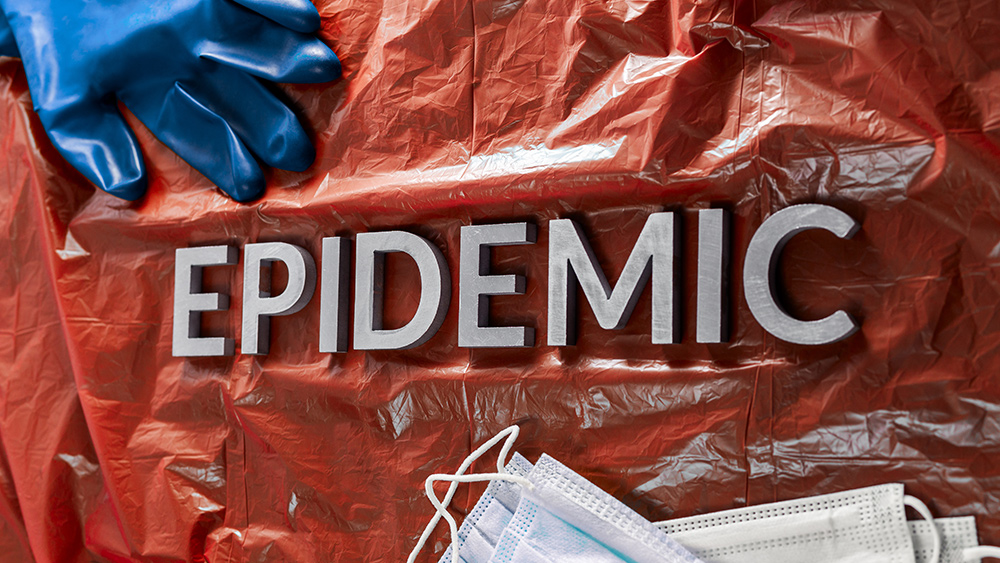Poor dental health linked to greater liver cancer risk: Oral and gut microbiomes are linked
02/24/2020 / By Darnel Fernandez

Chances are your parents reminded you time and time again to brush your teeth before and after meals as a kid to keep your teeth clean and healthy. However, achieving healthy teeth takes a lifetime of care, an understanding of oral hygiene basics and the occasional trip to the dentist. Unfortunately, according to the American Dental Association, about 100 million Americans fail to see a dentist each year; reinforcing the idea that people are forgoing their oral health for other matters. Poor oral hygiene not only leaves a lasting impact on dental health, causing gum disease and tooth decay, but it can also lead to worse conditions like heart disease and diabetes. Now, recent research suggests that poor oral health can also increase your risk of developing certain cancers.
A study published in the United European Gastroenterology Journal found a substantial link between poor dental health and hepatobiliary cancer. In particular, it increased your risk of developing hepatocellular carcinoma — the most common form of liver cancer — by up to 75 percent.
“Poor oral health has been associated with the risk of several chronic diseases, such as heart disease, stroke and diabetes,” said lead author Haydee Jordao. “However, there is inconsistent evidence on the association between poor oral health and specific types of gastrointestinal cancers, which is what our research aimed to examine.”
Poor oral health and liver cancer risk
Liver cancer has been a growing health problem over the past several decades. According to the Centers for Disease Control and Prevention (CDC), around 33,000 people get diagnosed with liver cancer every year, with about 27,000 of these patients dying from the disease. However, it is widely believed, particularly in the integrative healthcare community, that many of these liver cancer cases are actually preventable as their risk factors often relate to lifestyle choices, such as obesity, smoking and even alcohol consumption.
For this study, researchers from the Queen’s University Belfast in the U.K. investigated the association between oral health conditions and gastrointestinal cancer risk, including cancers of the liver, colon, rectum and pancreas.
The research team enrolled 469,628 participants using data from the UK Biobank prospective cohort study. Among these participants, the researchers detected 4069 gastrointestinal cancer cases during the six-year follow up, of which 13 percent self-reported having poor oral health. They also observed that participants with poor oral health were more likely to be younger, female, living in a deprived socioeconomic area and consumed less than two portions of fruit and vegetables every day. (Related: Oral health, gut microbiome and cancer prevention: Poor dental hygiene is associated with 75 percent INCREASED RISK of liver cancer)
Overall, the researchers noted that while there were no associations between self-reported poor oral health and gastrointestinal cancer risk, further analysis revealed that there is a significantly increased risk of developing hepatocellular carcinoma in people who self-reported poor oral health.
However, the researchers explained that the biological mechanisms that explain why poor oral health may be strongly associated with liver cancer instead of other digestive cancers is still currently unknown. One potential theory they proposed is the potential role of the oral and gut microbiotas in disease development.
“The liver contributes to the elimination of bacteria from the human body,” said Jordao. “When the liver is affected by diseases, such as hepatitis, cirrhosis or cancer, its function will decline and bacteria will survive for longer and therefore have the potential to cause more harm. One bacteria, Fusobacterium nucleatum, originates in the oral cavity but its role in liver cancer is unclear. Further studies investigating the microbiome and liver cancer are therefore warranted.”
Another theory in explaining the higher liver cancer risk due to poor dental health suggests that participants with a high number of missing teeth might be influenced to alter their diet to consume softer and less nutritious foods, leading to an increased risk of liver cancer.
Your oral health can affect much more than just your mouth and teeth; it can also contribute to a variety of other health conditions. By improving your oral health, you can reduce your risk of developing certain liver cancers, as well as other health problems.
Sources include:
Tagged Under: dental health, Fusobacterium nucleatum, gastrointestinal health, gut microbiota, hepatobiliary cancer, hepatocellular carcinoma, Liver cancer, liver damage, oral cancer, oral health, oral microbiota, prevention, research




















